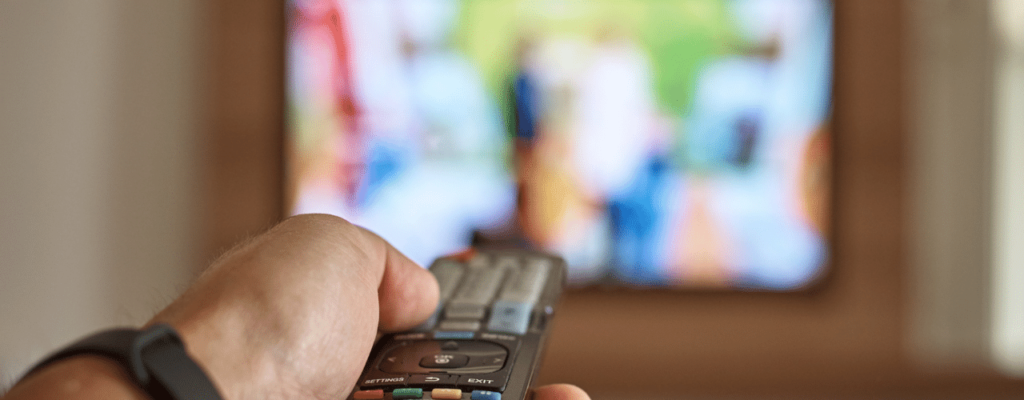Why Reality TV Makes Us Stupider

These days we rightly talk a lot about exploitation and abuse. It comes in many forms and we worry we might walk past it without noticing.
Recently 665,000 Australians not only walked past but sat and watched something that we should recognise for what it really is – workplace exploitation abuse. The airing of ‘reality’ TV show “Beauty and the Geek” pairs beautiful, intellectually-challenged and relationally-hurt women with bright, socially-awkward, ‘virginal’ men.
Like it’s cousin – “Married at First Sight” (MAFS) – Beauty and the Geek (BATG) claim to have genuine love and romance for the contestants as their goal. Both programs claim to be utilising relationship science to help match contestants and challenge them to build a strong partnership.
And all of this, is presented to the public, as educative entertainment: a docu-drama recording the ‘experiment’ of transformation.
Pseudo-science
While the host of BATG assures us that scientific principles inform the programming, the challenges imposed on participants are extreme and far from normal dating activities. Hosting a live radio segment, competing in a couple’s wrestling match, passing themselves off as expectant parents in an antenatal class – these are all the usual things a dating couple would do, right?
One scene features the make-over of a ‘geek’ having his sensitive skin spray-tanned while wearing only a disposable g-string. Educative value? Mass voyeurism would be a more accurate characterisation.
Let’s be clear, this is degradation in exchange for ratings. It was clearly orchestrated to maximise his humiliation, with the camera lingering alternately on his reddening face, his scant-covered genitals and his exposed buttocks.
With 12 years of scientific training between us, we take offense at this misappropriation of the scientific method for the purpose of gratuitous entertainment. As human beings, we take offense at the explicit and pre-meditated exploitation and degradation of our fellow human beings.
Unreality TV
The fact that the victims of these reality TV shows are consenting adults who sign contracts, does not make it ethically neutral. A person cannot consent to their own degradation.
It’s too early to definitively know the damaging impact of this current show on its participants, but some former participants of the longer-running MAFS show are providing important anecdotal evidence.
Many people would describe as unethical some of the practices used by producers, such as strategically recruiting participants to be the designated ‘hate’ figures. Augmented by selective editing of footage collected throughout intense 24/7 filming schedules, their words and gestures were manipulated to maximise the perception of socially unacceptable views.
These contestants, now social pariahs, find the public abuse through social media and in person pursues them long after the program is over. Some suffer long-term mental health issues from the trauma of public humiliation with serious consequences for their employment. A number have attempted suicide, some successfully.
Meanwhile contracts that permit producers to portray any ‘reality’ they choose make it incredibly difficult for the contestants to seek justice or compensation.
Science or Fiction?
We’re all for creative ways of presenting the very helpful insights of relationship science but neither MAFS nor BATG do this in any meaningful way. In fact, if either show bore any resemblance to actual science, it would be subject to the careful scrutiny of an ethics committee and would get no further than an idea on paper.
But these programs aren’t just bad for the contestants; they’re bad for the viewers because they intentionally mislead, misinform and legitimise the objectification and degradation of others.
The commercial success of the BATG show will ensure repeat seasons and a fresh batch of ‘consenting’ victims, but we won’t be watching. For our part, to consume this material, even as critics, is unconscionable.




This article is just silly. As someone who was actually a contestant on BATG I can comfortably say that no one felt “exploited” or “abused” as a result of their participation. BATG isn’t MAFS, and I think by discussing both in the same breath you draw a false equivalency. To my knowledge, all the contestants from this season are generally quite happy with the way they were treated while filming and portrayed on screen, and that our objections (if any) are relatively minor.
The show also didn’t represent itself as being scientific (Sophie will be the first to admit she’s not particularly qualified to pair people up). It’s entertainment and novelty. And yes, that involved putting us into funny or awkward scenarios (you refer to one of the contestants getting a spray tan), but we never felt like the butt (pun intended) of the jokes. Everything was done with a good sense of humour and we were never pressured to do anything against our will. Suggesting that we – a group of 20 adults – can’t consent to our participation (or specifically, consent to a spray tan) is infantilising.
Your article also conveniently ignores all the times we were celebrated, both by the makers of the show and the other contestants, for the aspects of ourselves that make us unique.
The criticisms suggest to me that you only superficially engaged with the show, which is a real disappointment. BATG is a show that was genuinely full of heart, and you’ve missed an opportunity to discuss the more interesting themes it brings up : how young people feel isolated or disconnected, how dating is becoming complicated in this increasingly digital world, or how people are being underestimated because of their interests or how they look.
Instead, your article chooses to perpetuate the stereotypes of geeks as “virginal” and the beauties as “intellectually challenged” – these are offensive editorialisations on your part, that the show knew better than to endorse, infer, or say. If you actually watched the show, you’d know how far off the mark these statements are.